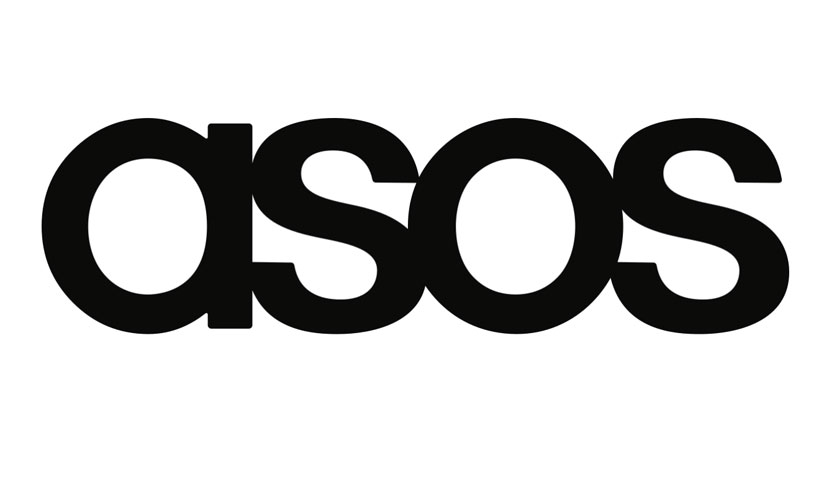ASOS is pleased to announce its industry-leading Fashion with Integrity (“FWI”) 2030 programme, laying out a comprehensive plan to achieve a new set of stretching ESG goals by 2030. Under the plan, which includes a commitment to achieve Net Zero across the full value chain by 2030, ASOS will continue its journey towards becoming a truly global retailer in a responsible and sustainable way.
Taking into account the most material issues for ASOS, the FWI 2030 programme is focused on minimising ASOS’ impact on the planet, delivering positive benefits for people who work in fashion and meeting increasing demands from customers for greater choice in responsible fashion. From that focus, ASOS has set two overarching pillars, Planet and People, which are underpinned by four key goals:
- Be Net Zero: minimising ASOS’ impact on the planet through decarbonisation targets set with the Carbon Trust. ASOS will be carbon neutral in its direct operations by 2025 and achieve Net Zero across its value chain by 2030
- Be More Circular: shifting towards more circular systems, ensuring 100% of ASOS own-brand products and packaging are made from more sustainable or recycled materials by 2030, prioritising circular design, and facilitating product recovery programmes
- Be Transparent: accelerating transparency and human rights within its supply chain and the wider industry. ASOS will publish a detailed human rights strategy and implementation reports annually from 2023; ensure that third-party brands are signed up to the Transparency Pledge and the ASOS Ethical Trade policy by 2025; and provide full public transparency of every ASOS own-brand product by 2030
- Be Diverse: driving diversity, equity and inclusion across every aspect of the business, with a focus on leadership representation. ASOS will ensure at least 50% female representation and over 15% ethnic minority representation at every leadership level by 2030
Nick Beighton, CEO, said:
“At ASOS we are proud to work in fashion. Ours is an industry that brings joy, gives people confidence, and provides millions of jobs around the world. We are proud that over the last decade we have been among those leading our industry when it comes to responsibility and sustainability. Our FWI programme has been a cornerstone of everything we do and has helped us deliver positive benefits for people and minimise our impact on the planet.
“Now we are pleased to announce our FWI 2030 programme and stretching ambitions. Achieving these will make us a Net Zero business that embraces more circular systems and uses more sustainable and recycled materials in our products and packaging. Our progress will be driven by a more diverse team with equity and inclusion at its heart, leading a business where transparency and human rights remain central to our approach. And, as we continue our journey to becoming a Truly Global Retailer, our new goals will ensure that we do so sustainably and responsibly.
“We cannot do this alone. As we’ve seen throughout the last decade, collaboration and engagement with other brands, civil society organisations and government is critical to driving lasting change. We will work closely with our brand partners and our suppliers, and we will forge new relationships and partnerships to drive progress and build new solutions to enable the achievement of our FWI 2030 goals.
“The responsibility for a sustainable future lies with all of us and businesses must lead the way. We will make sure we deliver products and brands that allow our customers to shop ethically and responsibly, safe in the knowledge that they are reducing their impact on the planet and contributing to a fairer world. We undertake the next step of our FWI journey confident that what we are doing is right for the planet, right for our people, right for our customers and will underpin our ambitious growth plans.”
Development of the 2030 FWI programme
FWI has guided ASOS’ approach to business since it was launched in 2010 and our achievements include:
- Building an industry-leading position in tackling modern slavery throughout our supply chain
- The co-founding of the Fast Forward auditing programme, designed to tackle issues in UK manufacturing
- The launch of the ASOS Design Circular Collection and training all commercial teams on circular design strategies
- Using over 80% recycled material across mailing and garment bags
- Reducing operational carbon emissions per order by 45% from FY16 to FY20
The plan announced today was formulated through an extensive and collaborative process, which included detailed stakeholder engagement, benchmarking against competitors, reviews of anticipated regulatory changes and a review of the progress achieved so far. The plan is also based on extensive consumer insight which has shown increasing demand for more choice in sustainable shopping.
ASOS has been effectively managing FWI as part of its business model for more than a decade. As it shifts the focus to its 2030 Programme, with the increase in projected demand for sustainable products, ASOS believes that a compelling sustainability approach is essential for all brands. Whilst progress on sustainability could lead to modest increases in costs in some areas, ASOS is confident in its ability to flex its agile model, collaborate with partners and leverage technological advances to offset any additional costs.
Four goals and associated KPIs
The full list of KPIs for each of the four key goals are:
Planet:
1. Be Net Zero: ASOS will achieve Net Zero carbon emissions across its value chain by 2030, driven by emission reduction targets, and will be carbon neutral in its operations by 2025
- Reduce Scope 1 and 2 emissions/order by 87% by 2030 vs 2018/19 baseline
- Reduce own-brand product emissions/£profit by 58% by 2030 vs 2018/19 baseline
- Reduce transportation emissions/£profit by 58% by 2030 vs 2018/19 baseline
- Two-thirds of third-party brands (by emissions) signed up to setting targets in line with SBTi requirements by 2025
2. Be More Circular: By 2030, ASOS will have shifted towards more circular systems, ensuring 100% of ASOS own-brand products and packaging are made from more sustainable or recycled materials, prioritising circular design, and facilitating product recovery programmes
- 100% of ASOS own-brand products made from recycled or more sustainable materials by 2030
- ASOS commits to defining a public-facing circularity strategy by 2023 to allow it to embed circular design principles by 2030
- 100% of own-brand packaging will be made from recycled materials and be widely recyclable by 2025
- Facilitate programmes for recycling and reuse in key markets by 2030
People:
3. Be Transparent: By 2030, ASOS will have led improvements on human rights and transparency within its own supply chain and the wider fashion industry
- 100% of ASOS own-brand products will have supply chains mapped to raw material level by 2030, extending its existing supply chain mapping
- Customers will be able to easily view and interact with information on the sustainability credentials of 100% of ASOS own-brand products by 2030
- 100% of third-party brands on ASOS will have committed to the Transparency Pledge and new ASOS Ethical Trading policy by no later than 2025
- From 2023, ASOS will publish annual human rights strategy and implementation reports, focused on freedom of association, gender empowerment, wages, and modern slavery, for independent monitoring by existing partners and external campaign groups
4. Be Diverse: By 2030, ASOS will drive diversity, equity and inclusion across every aspect of its business, with a focus on leadership representation and ensuring every ASOSer can be their authentic self at work
- At least 50% female and over 15% ethnic minority representation across its combined leadership team by 2023 and at every leadership level by 2030
- Over 40% female representation in Engineering, Product and Science (Technology) roles by 2030
- Zero statistically significant differences in engagement scores and functional attrition rates across all demographics from 2030, with all ASOSers able to be their authentic selves at work
- ASOS will publish a Diversity, Equity and Inclusion strategy and roadmap for the ASOS platform, its customers, and its people by 2023
Remuneration and governance
To ensure effective delivery of the 2030 FWI programme, ASOS will measure progress against the 2030 goals in leadership objectives and increase its focus on sustainability alongside business outcomes in reviews. This is already part of the CEO’s incentive arrangements, and from FY22 the wider ASOS executive team will each be set relevant FWI-linked objectives, which will impact their remuneration. ASOS has also set up a new ESG Committee, chaired by Nick Beighton, CEO, reporting to the ASOS Plc Board.
Report and Capital Markets Event
ASOS has this morning published “Fashion with Integrity: Our 2030 Strategy”, which can be accessed here link. Later today, ASOS will hold a Capital Markets Event at which full details of the plan will be outlined. To access the event click here. A full recording of the Capital Markets Event will be made available on the ASOS investor website after the event.


